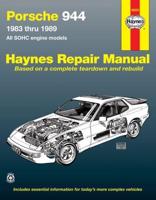Publisher's Synopsis
Transportation technologies in the field of unitization of goods, which culminated in the advent of containerization, have led to the subsequent development of intermodal transport featured by the integration of the following modes of carriage of goods: airways carriage, carriage by sea, inlands waterways, railways, and truck services. Whereas the technical, commercial, and economic aspects of the international intermodal transportation have been adequately addressed in scholarly publications, the legal regime related to the liability of the intermodal carrier is still unpredictable, quite unreliable, and does not respond to the requirements of the intermodal transportation for the purpose of the promotion of the global economy. At present, transport in carriage of goods means getting goods delivered from the producer to the consumer. The process would more likely involve an international intermodal carriage. The unpredictable, inadequate, and uncertain liability regime in international carriage of goods, as referred to previously, has a significant impact on the insurance schemes available in intermodal transportation. As a consequence, the insurance industry has been coping with conflicting laws and regulations while settling claims arising from frequent and high capital-intensive risks in the international intermodal carriage of goods.










